Yesterday, a woman stopped me while I was walking backing to my car from an event to introduce herself. She was a follower on Instagram, she said. She particularly loved my posts about Rudy. I thought I’d misheard her, at first. Most people say they relate to the posts about my father, my grandmothers, or enjoy my advice videos. I’m sorry, did you say Rudy? My dog? She nodded, explaining, Yes. I lost my dog, Eddy, last year. Your post really resonated.
I was surprised at how readily the tears came, then; how the mere mention of Rudy’s name by a stranger on the street could unlock a tiny vault of fresh grief that I had unknowingly preserved for just such occasions. Eyes wet, I looked up at this woman and asked her When did you lose Eddy? Her head bowed, she replied, last August. Another lashing of loss whipped its way around my body and I hugged my jacket to me, as if bracing against the cold. I’m so so sorry, I said. And I was sorry. Because in that moment, she’d invited me, briefly, into the darkness, into the dank cavern that was her heart and I knew this place because I’d been there.
Perhaps some part of me had never left.
As most of you know, I lost Rudy in 2022. It was one of the worst years of my life. Rudy’s death didn’t come as a surprise. He was 15 years old, his body was riddled with severe arthritis, and he was practically blind. He’d lived a good long life with us and having lost dogs before him, I’d seen the signs that the end was near, however much I hated them. But what I hadn’t been ready for was the grief, the all-consuming, shattering pain of it. The longing to feel his weight in my arms was an actual physical ache, one that I woke up with every morning and dreamt of when I slept. I’d sit outside in our backyard, look up at the clouds and imagine that one of them was Rudy, and that one day, it would fall out of the sky and into my lap.
I grew desperate to find a solution and the only solution that made any sense was to prove, definitively, that I would hold Rudy in my arms again; that this thing I wanted more than anything in the world would be mine, even if I had to wait a lifetime. But, despite reading lots of books on religion, philosophy, poetry, art… I concluded that where others failed, I would too. Two things I knew to be undeniably true: (a) others wanted proof of life after death, and (b) no one could prove it with sufficient certainty that obviated the need for faith.
But my grief was too fresh for faith. Indeed, the idea of faith was offensive to me, threw me into a rage so unwieldy, I often dreamt of throwing things or screaming at my uncle for defrauding me (my uncle is a pastor). I no longer had any resolve left for faith. What I demanded was hard, incontrovertible proof that Rudy was, in fact, waiting for me at the foot of the so-called Rainbow Bridge. When none was to be had, I started to question the point of life at all.
Again, it wasn’t losing Rudy, specifically, that threw me into an existential crisis. Rather, it was confronting the wall between myself and him and the sheer impossibility of scaling death that had me wondering whether life could ever have enough meaning for me again. For the first time, I’d tasted a defeat so resounding, so complete, it frightened me into despair. Who cared whether the world burnt to a crisp from carbon emissions? Who cared whether people continued to stuff their bodies with the product of cruelty and slaughterhouses? Who cared whether racism, sexism, homophobia, and other ideologies of hate continued to exact their toll? How could any of these things matter when, in the end, there was only an end?
And then, I met Lulu.
We adopted Lulu a little over a year after Rudy died, in August 2023. Part of me decided to adopt another dog because I felt it was my “duty as a vegan.” How could I justify living in a nice house in sunny California with just the two of us and not open our home to animals in need? Even as I write this, I suppose this sense of obligation itself was life affirming. Obligation is, after all, a function of purpose, the desire to pay a debt. And my life was an incurrence of debt, I assumed. No, to put it accurately, any joy I had was an incurrence of debt, and thus the debt and the obligation to pay it presupposed the existence of joy. The truth was, however dark it grew, my love for Anthony and the life we’d built together was something I still wanted to protect.
When we picked Lulu up at the designated meeting spot with her foster parents, I felt very little. She was cute, friendly, curious. I knelt down and picked her up, cooed to her in Korean, told her we would be her new family. But inside, I thought, You’re not as lovable as my Rudy was. How could I ever love you the way I loved my Rudy? For days, I carried a small, hard stone around with me and I started to resign myself to the fact that I would never really love Lulu the way I’d loved any of my other dogs; that Rudy’s death had irreparably broken me and that Lulu would have to settle for a nice house, plenty of food, and conscientious custodians.
But Lulu had this habit of crawling right onto my chest whenever I sat down. Not into my lap, mind you, but right up to my chest, until we were nose-to-nose. She’d stare at me, right into my eyes, and demand that I love her–not just intellectually, but with my whole body. She snuggled right up to me when we slept, her warm body anchoring me against the loneliness that haunted my dreams. Every time I walked through the door, she leapt up on her hind legs, her front paws snatching at the space between us, until I collected her in my arms and covered her face in kisses. And when I was working, typing another newsletter, drafting another recipe, editing another video, she insisted on joining me, because in a very short amount of time, she discovered she couldn’t bear to be without me and she had no qualms about revealing that need to me. In fact, she loved to show me how much she loved me.
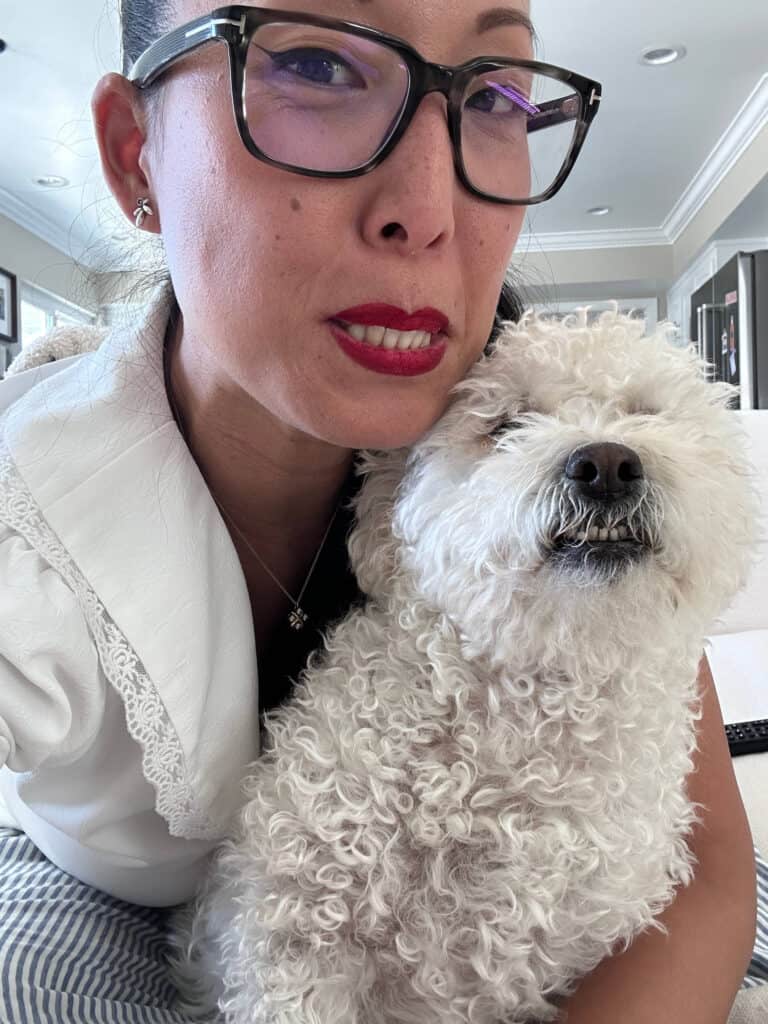 The Underbite.
The Underbite.My sister-in-law, YJ, was visiting just a few days after we’d adopted Lulu, and she said something in Korean that is truer about Lulu than just about anything I could ever write: Whoever doesn’t love Lulu has something rotten inside their heart.
Four months after Lulu came home with us, I wrote the following in my journal:
I’ve written over 12,000 words in the last three days alone. The pantry section of this next book will be 6x the length of the last one (if my editor lets me keep all of it). Whether or not it stays this long, it was necessary. I do not want to face the world with a second book without knowing my shit. I now know more about Korean salt than probably 99% of the world. Definitely more than my own mother.
Random factoid: did you know that tofu is often served to recently freed prisoners? The white color symbolizes the purity of their blank slate (the one they earned through paying for their crimes), while the protein content symbolizes the offset against the nutrient poor meals they had in jail. Yes. This will be in the book. Along with the fact that gochugaru was used to torture Korean rebels during the Japanese occupation.
After finishing the pantry section, I got up, collected Lulu into my arms and started dancing with her. I even asked Alexa to play a waltz and in a few seconds, Lulu and I were waltzing across my family room to the Danube. She gave me the “are you ok?” look and I couldn’t stop laughing and laughing, even as I continued to whisper “one-two-three, one-two-three” into her ears, until all of a sudden I was sobbing and the words “one-two-three, one-two-three” changed into “You saved my life Lulu, you saved my life.” Rudy’s photo flickered onto the digital picture frame next to the TV and I said again, “You saved my life,” before putting her down on the couch.
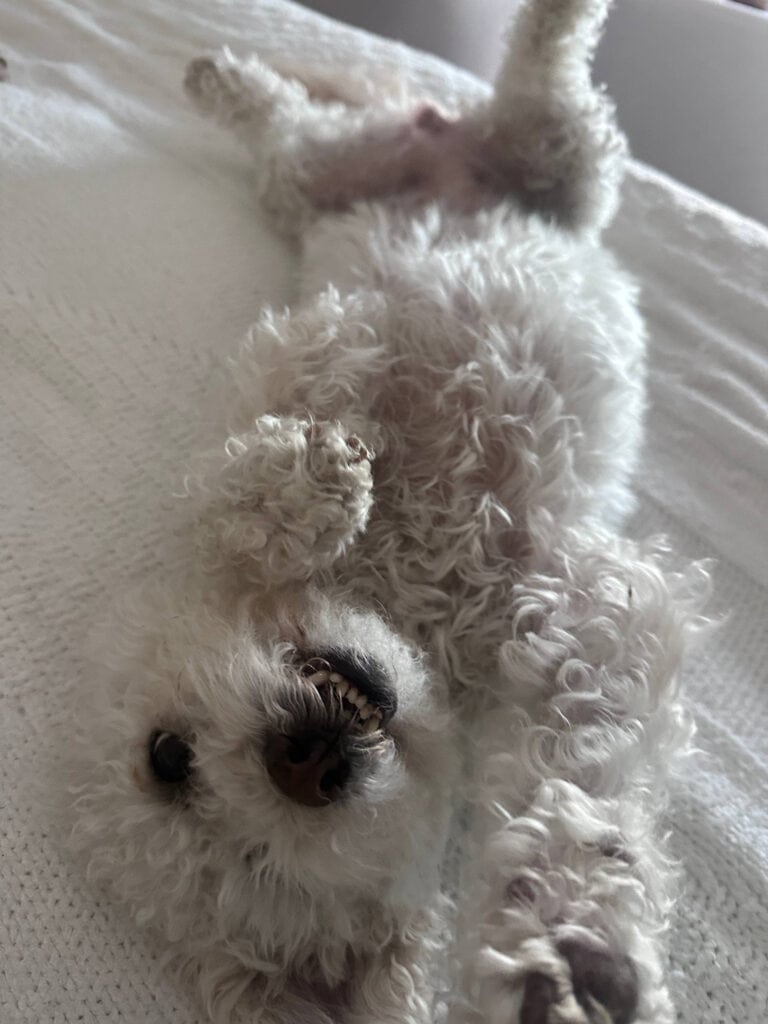
Did you like this article? If so, please share it!
Parting Thoughts
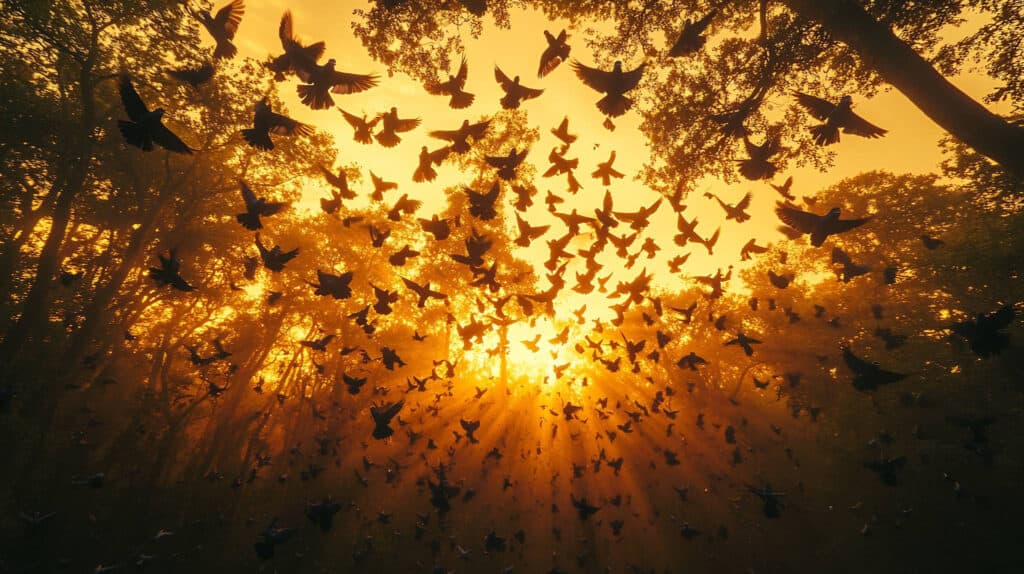
For over 100,000 years, the passenger pigeon flew across the great plains of the continent presently known as North America. At one point, they numbered over 3 billion and were thought to be the most populous bird on the planet, accounting for up to 40% of the bird population on Earth. Passenger pigeons were social creatures, traveling in flocks so vast and dense, they could eclipse the sun, blanketing small regions in darkness. The birds were particularly adept at following the lead pigeon, undulating and swerving in unison to avoid predators in the sky.
Today, there are no more passenger pigeons. European settlers disrupted the eons-long balance between the birds and the humans native to the region. More specifically, the colonists enjoyed eating the birds and never thought, for a moment, that their appetite could wipe out an entire species. But that is precisely what happened. The last authenticated sighting of passenger pigeons in the wild was in 1901. It is believed that the very last passenger pigeon perished in captivity in 1914.
Life is fragile. We trick ourselves into thinking that we are entitled to another 24 hours, followed by another 24 hours, followed by an endless row of 24 hours, mornings that turn into afternoons that morph into night and into dreams, without ever really considering the shape of the other bookend that grows larger with each passing day. That is what Rudy taught me–that I wasn’t just taking for granted the end of my life, but was also far too cavalier with what I was putting into my life.
Theodore Roosevelt claimed to have seen a flock of wild passenger pigeons in 1907 while on retreat at his cabin in Virginia. About a dozen two or three times on the wing, he described. They flew past him, a brittle vector piercing the grey sky, clinging to each other as if a talisman against the coming loneliness.
Until, one by one, they disappeared.
Wishing you all the best,
-Joanne


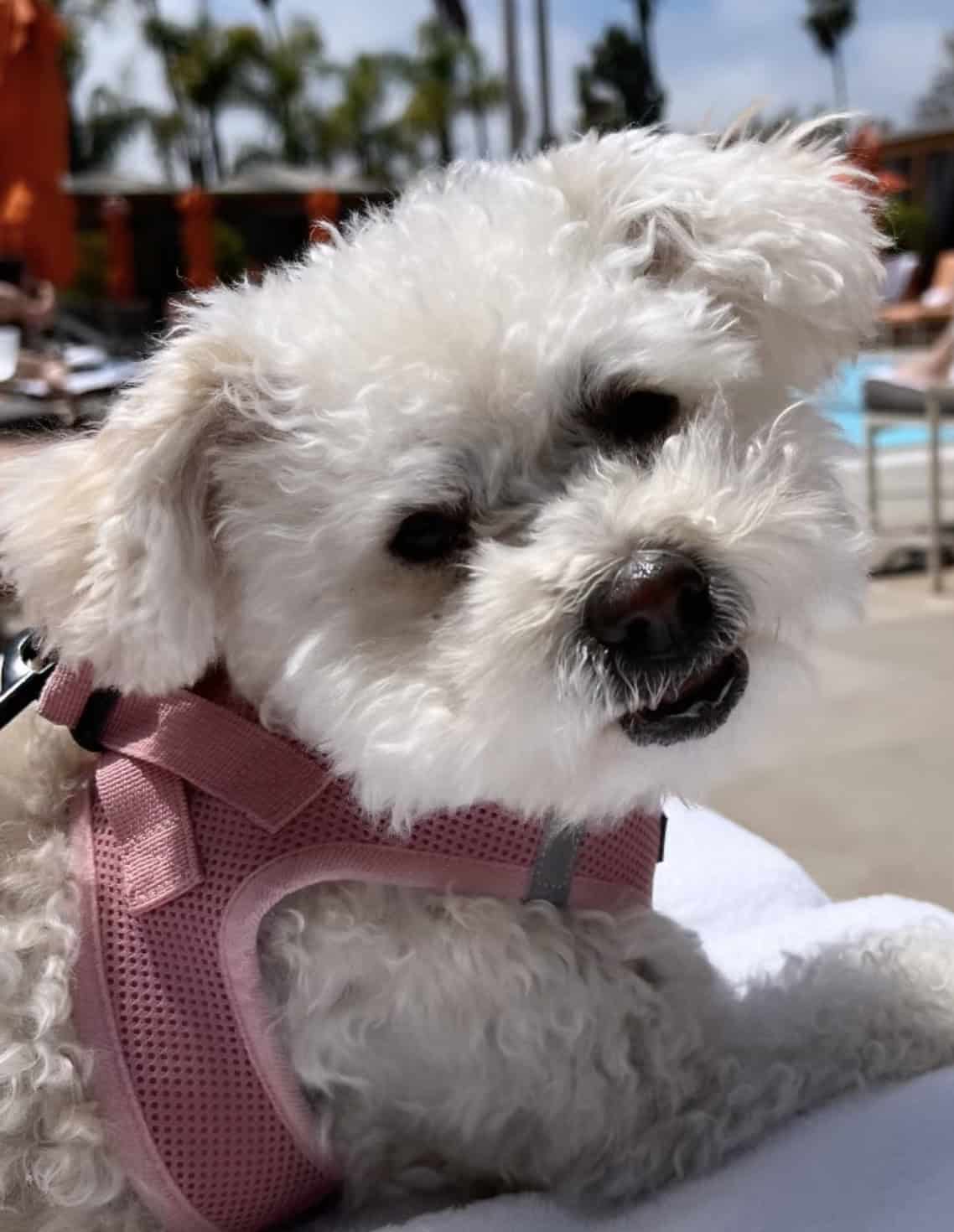
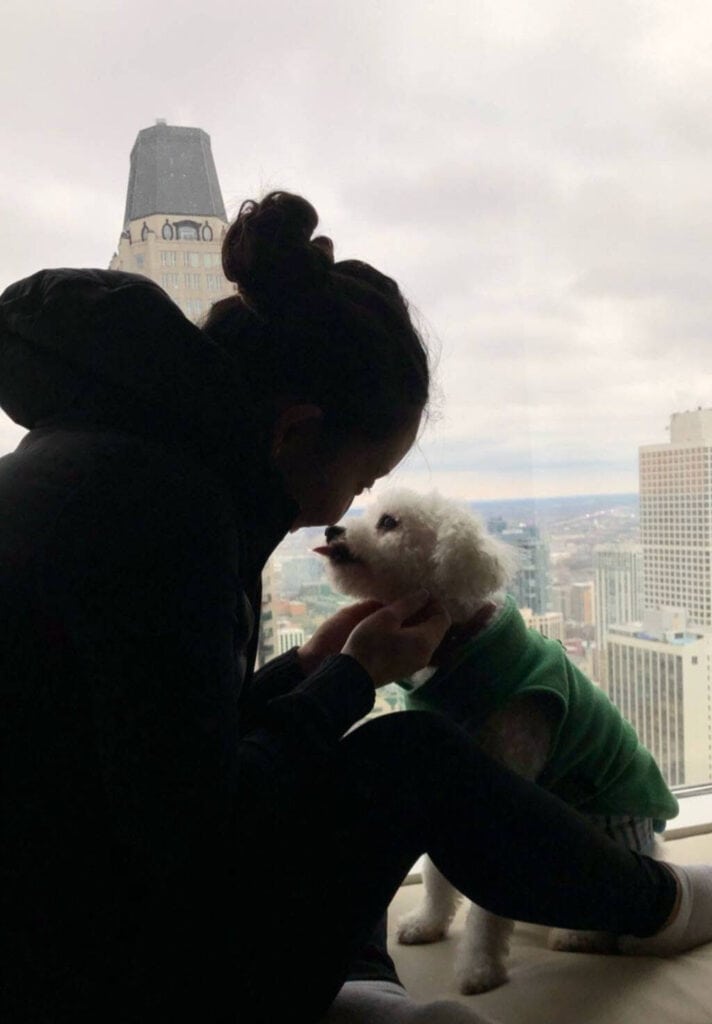
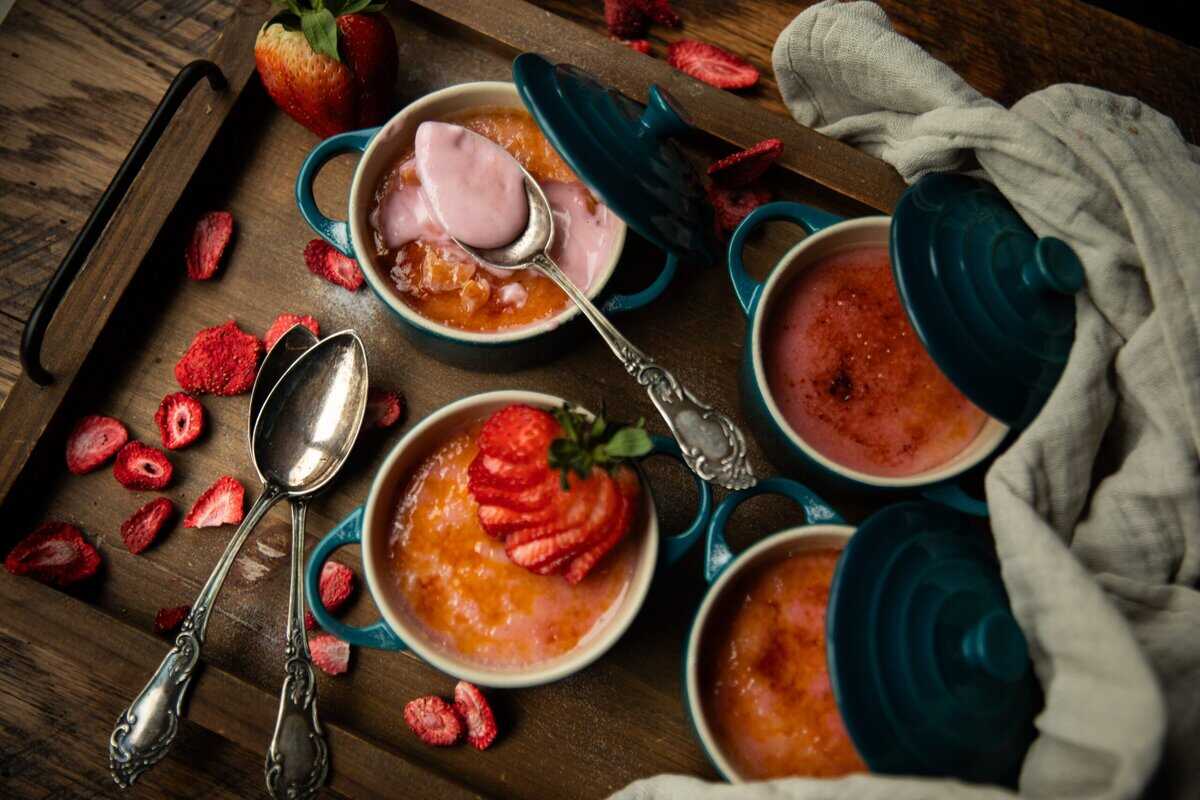








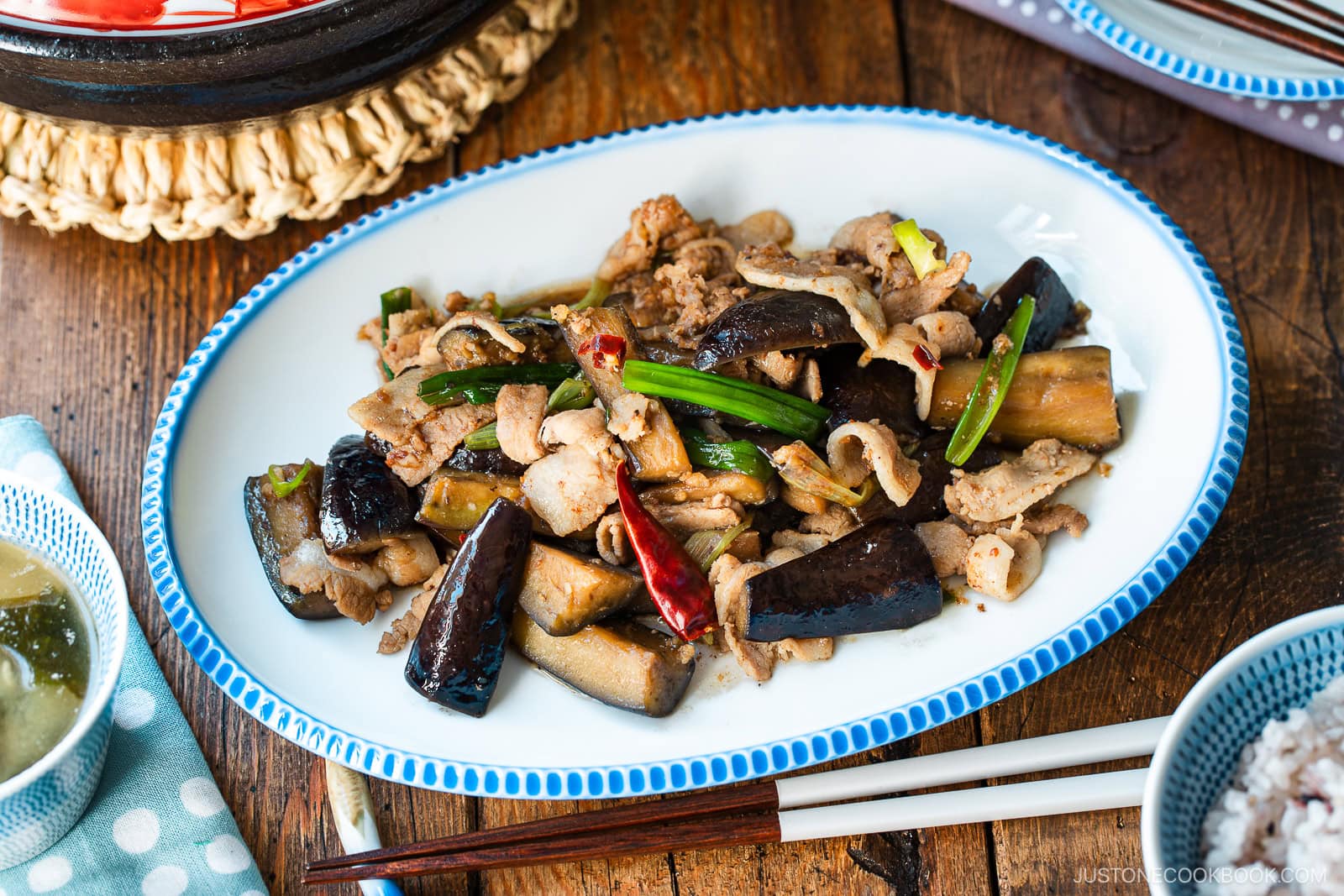
 English (US) ·
English (US) ·